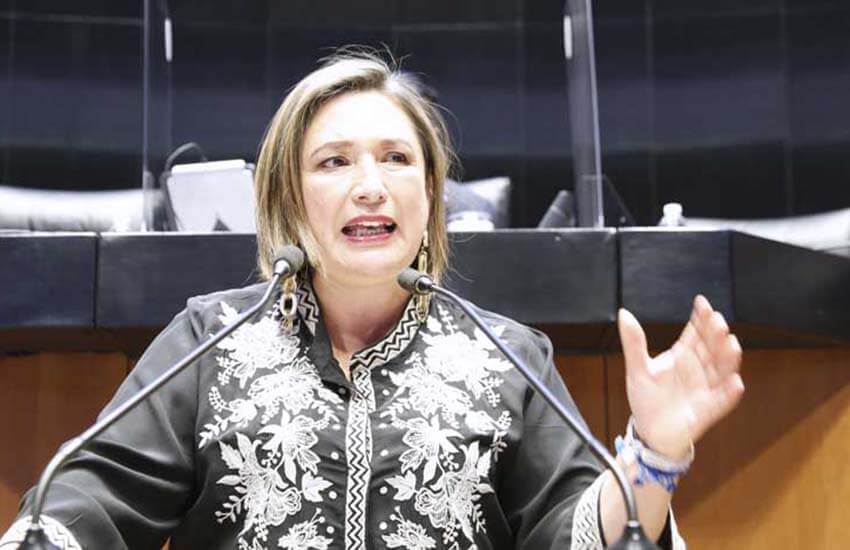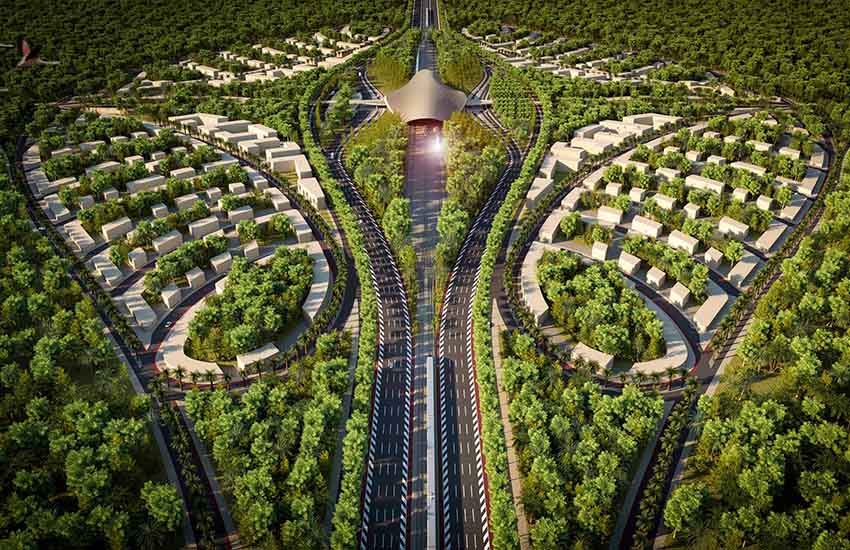President López Obrador has moved to protect and fast-track the federal government’s infrastructure projects from legal challenges and scrutiny by issuing a decree that establishes them as matters of public interest and national security.
Published in the Monday evening edition of the government’s official gazette and taking effect Tuesday, the decree drew criticism from several analysts, opposition politicians and others, who broadly agreed that it is indicative of an increasingly authoritarian government and will be detrimental to transparency.
The decree shields from scrutiny the construction of infrastructure projects in a wide range of sectors, including transportation, telecommunications, customs, water, tourism, health, the environment and energy.
It cited article 26 of the Mexican constitution, which says the state has a responsibility to organize “a democratic planning system for national development” that provides “strength, dynamism, competitiveness and equity to the growth of the economy and the political, social and cultural democratization of the nation.”
The decree also covers all projects whose construction is deemed a priority and strategic for national development. It protects signature infrastructure projects such as the new Mexico City airport, the Maya Train railroad and the Dos Bocas refinery, all of which have faced legal challenges.

The newspaper Reforma said the decree will allow the federal government to avoid having its projects halted by injunctions and other legal instruments.
It instructs government agencies to grant provisional authorizations and permits to projects deemed to be of public interest and national security in a maximum period of five working days so as to ensure their timely execution. If that period elapses without provisional authorization having been granted, the application “will be considered resolved in a positive sense,” the decree states.
Provisional authorization will be valid for 12 months after which a project will require definitive authorization to continue.
The requirement for agencies to issue expedited temporary approval to projects will come at the expense of environmental, feasibility and accountability review processes.
José Antonio Crespo, a political scientist, said the publication of the decree reveals the authoritarian character of the federal government and leaves those affected by its infrastructure projects – Mayan communities on the Yucatán Peninsula in the case of the Maya Train, for example – without the opportunity for legal recourse.
“It’s the authoritarian way of doing things because in a democracy, the possibility of litigation is accepted,” he said.
Crespo also said the publication of the decree shows that the president knows that his infrastructure projects have numerous deficiencies.
“[There is] certainly corruption, … there are a lot of direct allocations [of contracts], there is surely a lot of missing money,” he said.
“… It suits him [López Obrador] to declare projects of national security [importance] so that the injunctions of people who are being affected, groups whose interests are possibly being violated, don’t work,” Crespo said.
Alberto Aziz Nassif, an academic at the Center for Research and Higher Studies in Social Anthropology, said the decree will affect people’s ability to access information about infrastructure projects, representing a blow to transparency.
The National Defense Ministry refused in 2019 to release the master plan for the new Mexico City airport on the grounds that doing so placed national security at risk, even though López Obrador had pledged that all information related to the construction of the airport would be made public.

If an application for information is submitted to the National Institute for Transparency and Access to Information (INAI), it will be blocked as a result of the decree, Aziz said.
“How much was spent on an infrastructure project and who carried it out won’t be known,” he said, adding that public works will be shrouded in darkness. “[The decree] is a backward step [for transparency],” Aziz said.
Jacqueline Peschard, a former president of the INAI and the National Anti-Corruption System, also said the move was a setback for transparency, asserting that it violates transparency provisions in the constitution.
“All public projects, everything related to public resources must be public. It can’t simply be something that is decided arbitrarily,” she said.
Valeria Moy, director of the Mexican Institute for Competitiveness, a think tank, and Xóchitl Gálvez, a National Action Party (PAN) senator, agreed.
“[It’s] another blow to transparency and accountability by the 4T [fourth transformation],” Gálvez said, referring to the government by its self-anointed nickname.
“This government is increasingly heading towards authoritarianism. … It won’t have to consult with indigenous peoples nor present environmental impact statements and will be able to jump over municipal and state [requirements for] permits,” she said.
Fellow PAN Senator Damián Zepeda predicted that the “illegal infrastructure decree” will face a challenge in the Supreme Court but lamented that López Obrador will have enough support in the court to defeat it.
Independent Senator Emilio Álvarez Icaza said Mexico has moved dangerously to a “state of emergency” due to López Obrador’s overriding of existing legislation.
“Today’s presidential decree favors conduct by the authorities that is outside the law,” he wrote on Twitter. “… His authoritarian character and disdain for the law are his essence.”
Paolo Salerno, a managing partner of the energy consultancy Salerno y Asociados, took aim at the instruction for government agencies to grant provisional authorization for projects in just five days.
“How can it be determined in five days whether there is an environmental, social or human rights violation? What happens if the final ruling is negative and measures with irreversible impacts have already been implemented?” he asked.
The president said on Tuesday the directive was aimed at stopping bureaucracy from holding up projects, allowing the government to bypass environmental and other regulatory checks.
“Its very troubling because for a government that says it’s committed to transparency and accountability this decision is anything but,” said Arturo Sarukhán, former Mexican ambassador to the U.S., saying that the rules had set the tone for the second half of López Obrador’s term.
“What you’re going to see, and this is one of the first signals, is a president that is actually going to double down on his pet peeves, his pet projects,” he said.
With reports from El Universal, Financial Times and Reforma
